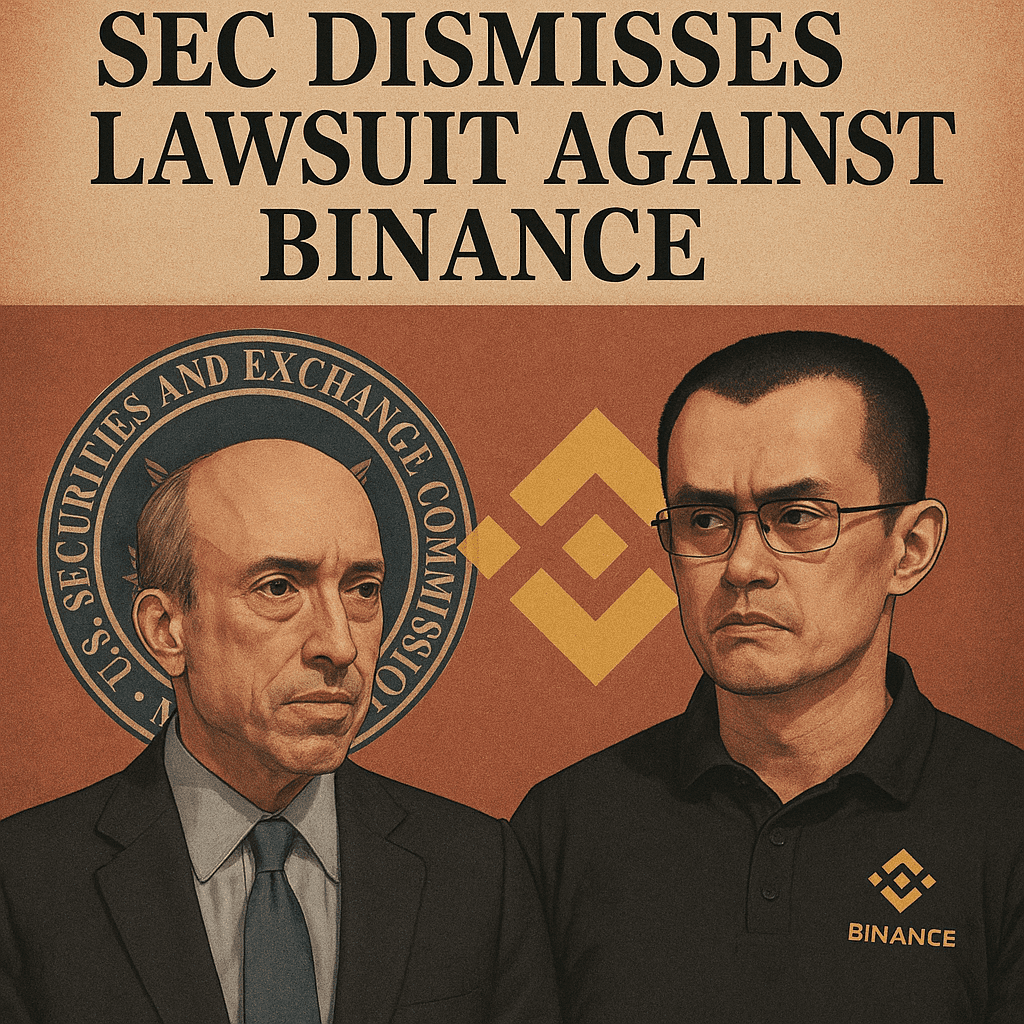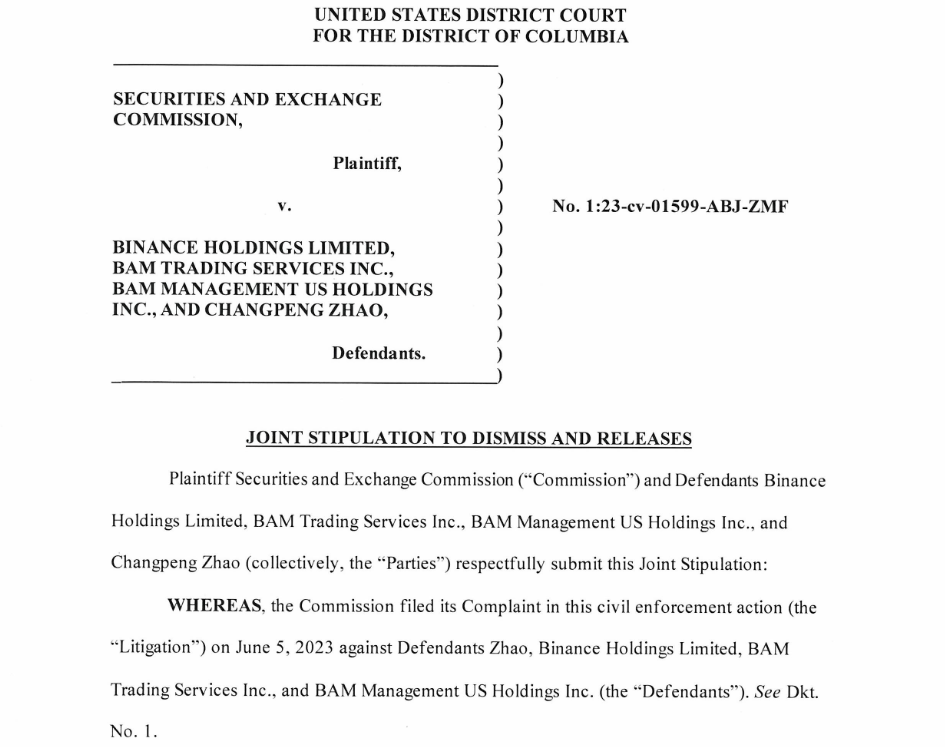
In a surprising turn of events, the U.S. Securities and Exchange Commission (SEC) has voluntarily dismissed its high-profile lawsuit against Binance and its founder Changpeng Zhao (CZ), raising serious questions about the future of crypto regulation in the United States.
The lawsuit, filed in June 2023, accused Binance of serious violations including operating an unregistered securities exchange, misleading investors, and commingling customer and corporate funds. These allegations painted a picture of systemic misconduct at one of the world’s largest crypto exchanges.
But on May 29, 2025, the SEC and Binance jointly filed a motion to dismiss the case with prejudice — meaning it cannot be brought back to court. The SEC offered little public justification beyond vague references to a strategic shift and the establishment of a “Crypto Task Force.”

A Political Signal?
Critics argue that this dismissal may reflect more than just a regulatory reevaluation — it could be a political move. Since returning to office, President Donald Trump has openly supported the cryptocurrency sector, pledging to protect it from what he calls “Biden-era overreach.” Under his administration, the SEC is increasingly aligning with a more laissez-faire approach to digital assets, a stance welcomed by industry leaders but viewed as deeply concerning by investor advocates.
This isn’t an isolated event. The SEC has also softened its stance on other major platforms like Coinbase and Kraken, either settling cases or dropping them entirely. While the crypto industry may celebrate these moves as “wins,” others warn that enforcement retreats risk emboldening bad actors and undermining investor protection.
“We’re watching the slow dismantling of the regulatory wall that was meant to protect American investors from opaque and risky financial products,” one former SEC official told Cointelegraph on condition of anonymity.
Binance’s Troubled Record Remains
It’s crucial to remember that Binance isn’t walking away clean. In a separate criminal case, Binance pleaded guilty to anti-money laundering violations in 2023, agreeing to a staggering $4.3 billion fine. CZ himself served a four-month prison sentence earlier this year. The SEC’s decision to now abandon the civil proceedings raises the uncomfortable question: Is accountability optional in crypto — depending on the political winds?
What’s Next?
For now, Binance and its supporters are calling the dismissal a victory — and it is, legally speaking. But the bigger story may be what it says about the United States’ shifting regulatory posture. With enforcement actions being rolled back and political rhetoric heating up, the SEC’s dismissal could mark the start of a dangerous trend: a crypto industry operating with less oversight than ever before.
Sources:
